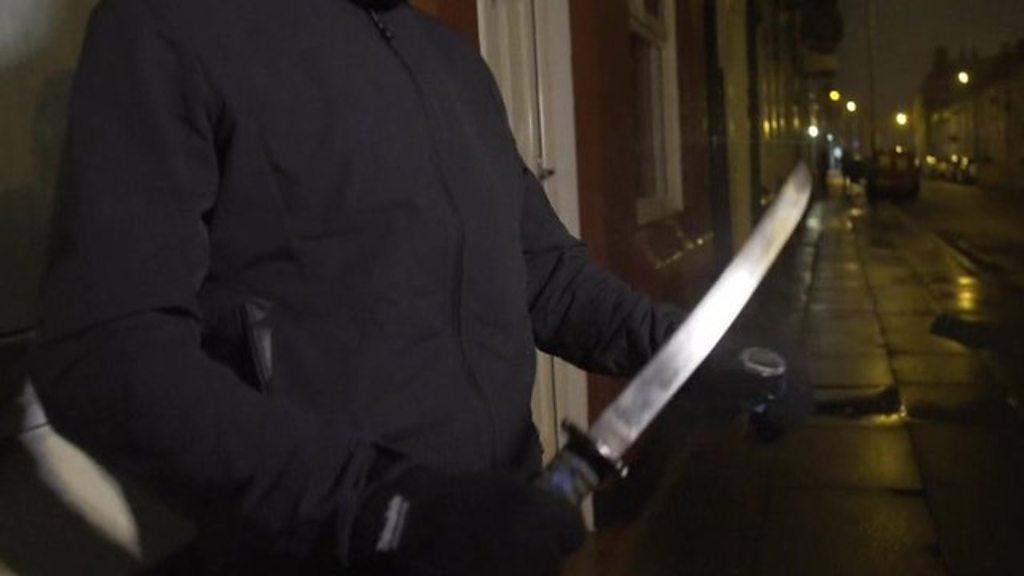On a knife edge: The rise of violence on London's streets
- Published
Special correspondent Ed Thomas has witnessed the reality of knife crime
Delivery rider Abla's life changed in an instant in July on his way through Tottenham, north London.
After stopping at traffic lights, his moped was surrounded by five other motorbikes, two riding on the road, three on the pavement.
With the lights on red, he was pushed off his scooter while being threatened with a knife. In a matter of seconds the bike was gone.
"My money has gone, my bike has gone, my job, everything," he said.
"I don't know what I'm going to do."
With only third party insurance, he estimates he's had £2,500 stolen from him.
He is far from being alone.
Across England and Wales an incident involving a blade or sharp object takes place, on average, every 14 minutes. Of the 37,000 incidents in the past 12 months, more than 13,000 offences were committed in London.
We filmed Abla's bike being stolen. What is striking looking back at the footage is how small the robbers look on their mopeds.
But the police say this is not a surprise, with the average age of moped criminals at just 15.
Just weeks later we encounter the aftermath of another attack - this time a woman in a wheelchair assaulted in her local park after a man tried to steal her bag.
Her head and arms covered in blood, she is confused and distressed.
"I couldn't see anything", she said. "He just said 'give me your bag'... I just don't know why people have to do these things."
The violent robbery was witnessed by a group of teenagers. One of them told us he saw violence every day and now felt hopeless.
"It's scaring people because things are happening so often, to the point where people are fearing for their lives every single day."
The capital has seen a staggering 34% rise in knife crime over the last year.
'Carrying a knife changed my life'
Paul McKenzie has spent all his life in Tottenham.
When he was 15 years old he was stabbed in the hand with a machete.
Shortly afterwards he decided to start carrying a knife to protect himself.
But just months later police caught him with the weapon, and he was sent to a young offender's institute.
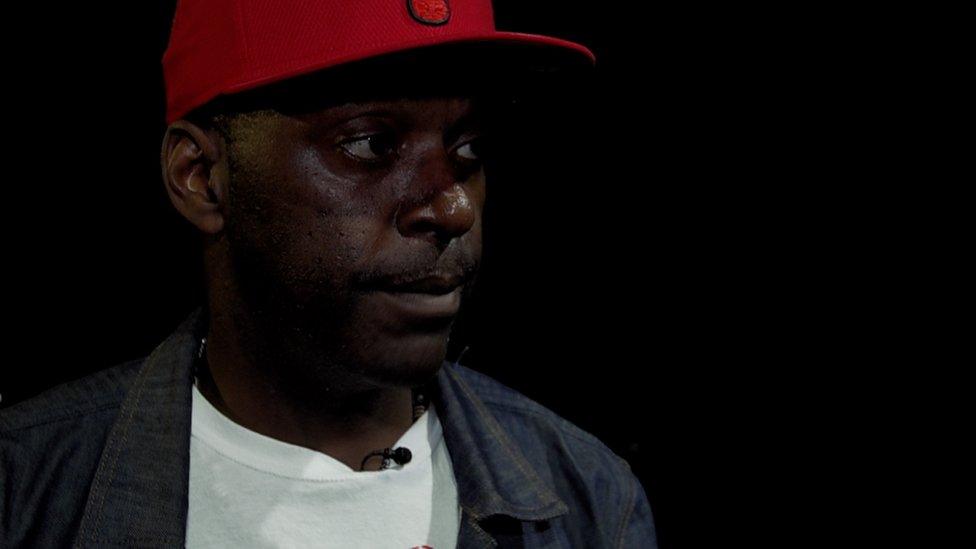
Paul McKenzie is committed to getting knives off the streets, after police caught him with a weapon
Since then he has spent 20 years working with young people to educate them about the dangers of drugs, gangs, knives and guns.
He said most of the young people he speaks to in his workshops carry knives for protection.
"What you're finding is - and this has come out of the mouth of a few young people I've spoken to - that teenagers actually know people who can stitch [their wounds] up."
"A lot of the knife crimes are not reported because nobody wants to be involved with the police."
Mr McKenzie said that as well as the fear of 'snitching' there is a lack of faith that an investigation will lead to a prosecution.

The BBC has learnt that police forces across England and Wales are charging fewer people for knife crimes at the same time as offences are rising.
Freedom of Information (FOI) responses from 30 out of 43 police forces showed that the number of knife crime offences that led to offenders being charged or summoned to court had fallen by eight per cent between 2015 and 2016.
But in Northern Ireland, knife crime is down for the second successive year.
Police in Scotland only began collating comprehensive knife crime figures in April. Prior to this, statistics were kept for possession of a knife - this has remained stable for the last few years.
Mr McKenzie regularly gets tip-offs about the public places where knives are hidden by people to use when they might need them at short notice.
As he walks around a park in Enfield, north London, it takes him just minutes to find what he is looking for.
"That could be the difference between someone living and dying right there, because now I know that's not going to go into somebody's chest."
The Metropolitan Police say people carry knives for many reasons - for some it's because they mistakenly believe it offers them protection.
One man the BBC spoke to, who carries a Rambo-style knife and does not want to be identified, said he felt safer when carrying a blade.
He admitted to seeing multiple friends injured from knife crime - some of them have died.
He added: "It makes you know that you have to keep a knife with you, because it's a part of life now."
Perhaps the most striking feature of the increase in extreme violence is the number of young people involved.
Statistics show a third of all those accused of offences where a gun was fired (237 out of 668) in London since 2012 were aged 19 or under.
Forty-five of the offences were committed by people aged under 14.

The increase in violent crime does not only involve knives.
Gun crime offences still remain below historic highs of March 2007 - when they were 31% higher than today - but the increase over the last three years is marked.
Gun crime across England and Wales has increased by 27% over the last year and in London is 42% higher.
One-in-six of the victims of gun crime in London in the first eight months of this year was aged 17 or under.
The Metropolitan Police is trying to tackle the issue using stop-and-search. In a statement the Met said it regards it as an "invaluable tool" that takes several thousand weapons off the streets each year, and has been backed by Commissioner Cressida Dick.
The force says it has changed the way they use stop-and-search and complaints have fallen by over 60%.
But the tactic can cause tension.
Friends of Jordan Malutshi, a 17-year-old stabbed to death in 2012, were stopped and searched at a memorial barbecue at Patmore Estate in Wandsworth, south London.
An officer told us there had been three murders locally within a matter of weeks as a result of knife crime.
But one of Jordan's friends, calling himself Abs, claimed the search amounted to racial profiling.
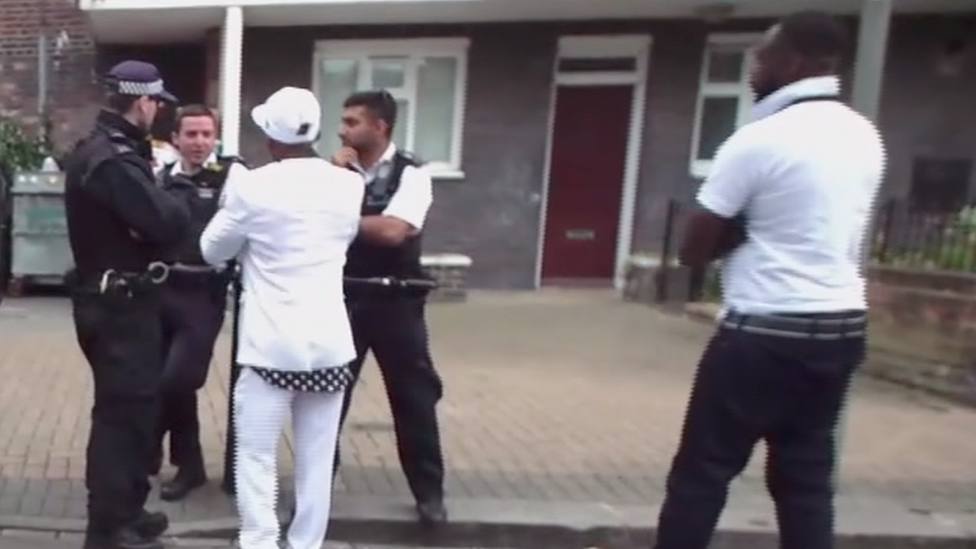
A stop-and-search was used on a Wandsworth estate for the first time in three years as people began arriving to Jordan Malutshi's memorial
He said he thought the group was stopped because the police saw "four black youths in a car, in a nice car".
The BBC has learned that 65% of all people who face criminal proceedings for knife crime in London are from ethnic minorities, and 42% are black.
The Metropolitan Police Commissioner, Cressida Dick, said tackling violent crime is her priority.
In a statement to the BBC, she expressed her "anger" at "the apparent perception amongst some criminals that they could operate with near impunity".
- Published19 October 2017
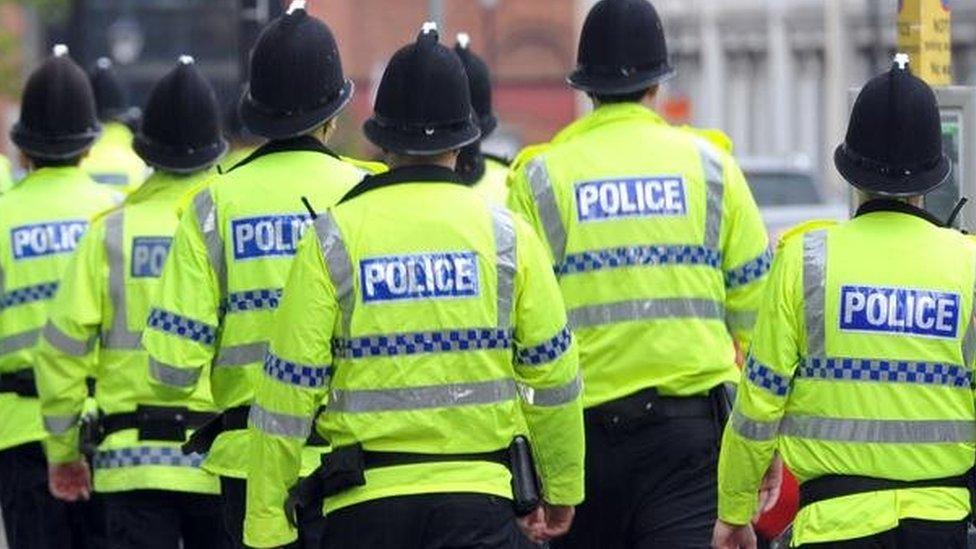
- Published24 January 2019
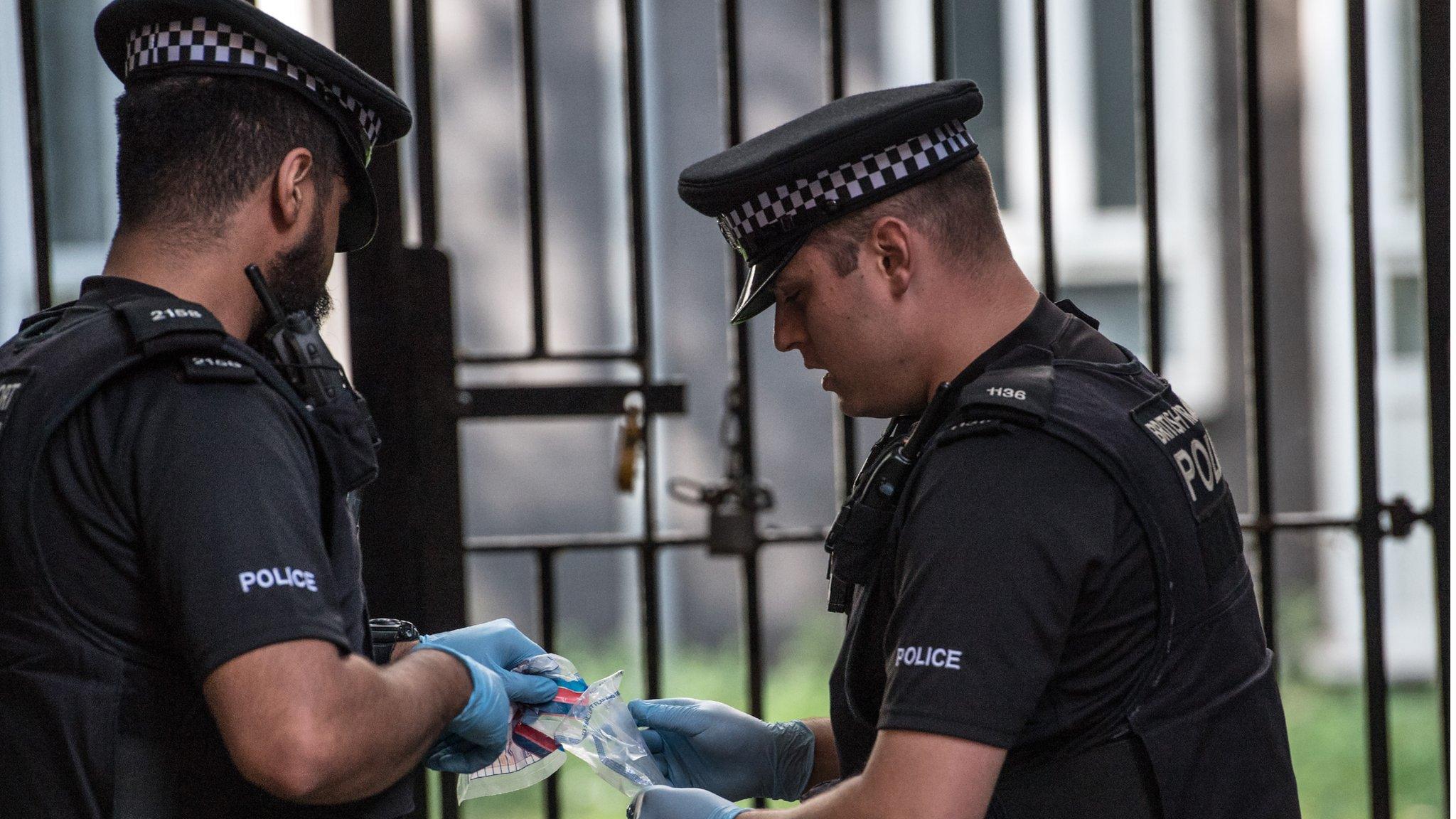
- Published16 October 2017
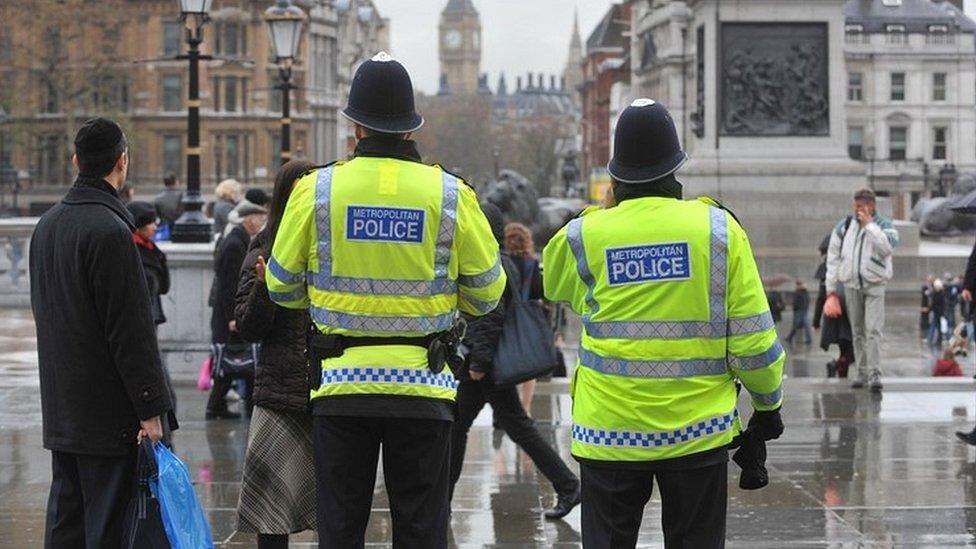
- Published25 January 2017
